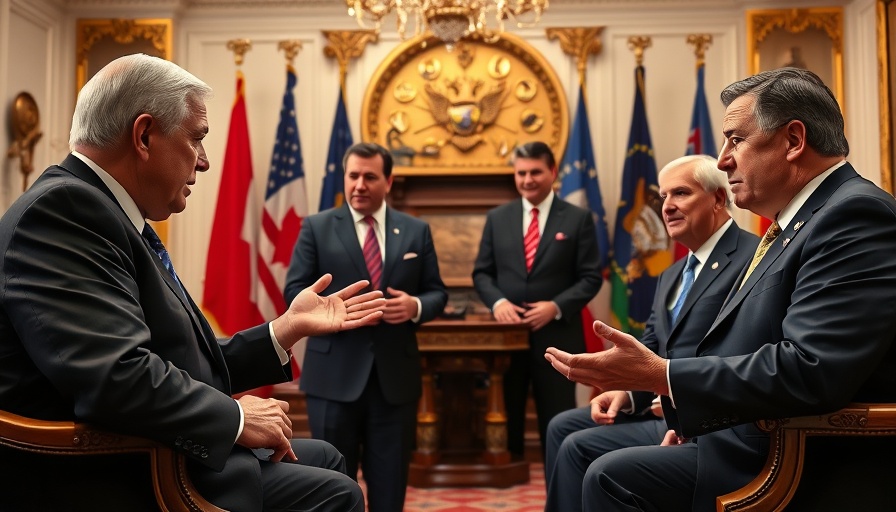
Understanding Political Motives in Nigerian Politics
In the political landscape of Nigeria, the recent remarks by Nyesom Wike have ignited important discussions about the underlying motives of opposition parties. Wike, the former governor of Rivers State, openly critiqued the tendency of political rivals to influence public sentiment depending on their proximity to power. His assertion—that Nigerians tend to exhibit happiness predominantly when those in governance are aligned with their political beliefs—offers a critical lens through which to assess the current state of political discourse in the nation.
In 'Nigerians Only Happy When You Hold Power' — Wike Tackles Opposition Over Political Motives, the discussion dives into political behaviors and sentiments in Nigeria, prompting a deeper analysis on governance and public satisfaction.
The Historical Context Behind Wike's Statement
Wike's comments did not emerge in a vacuum; they echo longstanding grievances within the fabric of Nigerian politics. Historically, political allegiance in Nigeria often swings like a pendulum, swayed by promises of power and resources rather than substantive policy change. Analysts have observed that public happiness correlates not with good governance or development outcomes but rather with perceived benefits bestowed by political allies. This cycle perpetuates a disconnect between the governed and their governors, leading to a populace that is anything but politically engaged—as seen in the vibrant but often unpredictable political environments across the continent.
Public Sentiment and Its Implications
The emotional undercurrent of politics in Nigeria reflects broader sentiments across many African nations, where loyalty often overshadows accountability. When Wike spoke about Nigerians' happiness being conditional, he highlighted an intrinsic flaw in political dynamics—one that values party allegiance above citizen needs. The subsequent public reactions point to a growing disillusionment among the populace, illustrating how essential it is for active citizenship and civic engagement to counter political lethargy.
Exploring Political Realities and Misperceptions
Wike's perspective also invites a deeper exploration of common misconceptions surrounding political affiliations. Many citizens may mistakenly believe that supporting political figures unconditionally ensures better representation. In reality, historical patterns demonstrate that political parties should be held accountable for their actions, regardless of their affiliation. This raises the critical question: how can more Nigerians embrace a culture of accountability in a landscape dominated by corrupt practices and favoritism?
Diverse Perspectives: Intersection of Power and Governance
While Wike's critiques resonate with many disenchanted with the opposition's perceived duplicity, others argue that such comments can deepen divisions. Some political analysts advocate for a more unified approach, positing that constant opposition to political figures can result in stunted progress for citizens. This presents a compelling counterargument: rather than focusing on what divides political factions, should Nigeria not explore avenues for collaboration that transcend party lines for the sake of national unity?
The Future of Political Engagement in Nigeria
As Nigeria approaches key electoral cycles, Wike’s insights challenge all stakeholders to rethink their strategies regarding governance and public engagement. There is potential for citizens to demand more from their leaders through advocacy and informed voting rather than blind loyalty. Grassroots movements powered by social media platforms have increasingly become vital tools for raising awareness and engaging younger generations, further illustrating the transformative potential of a politically conscious public.
Nyesom Wike's declarations not only serve as a critique of opposition politics—but also as a call to action for the Nigerian populace. As citizens, fostering a culture rooted in accountability, rather than mere allegiance to political figures, is essential in shaping a healthier political future. If more leaders like Wike are willing to challenge existing norms, the potential for a paradigm shift in how governance is perceived in Nigeria could be realized. Strengthening citizen voices through public engagement, advocacy for transparency, and inclusivity in politics will pave the way for a more vibrant geopolitical landscape.
 Add Row
Add Row  Add
Add 


Write A Comment